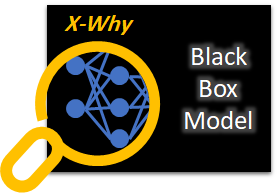Explaining black boxes with a SMILE
SMILE (Statistical Model-agnostic Interpretability with Local Explanations) is a new method that improves explainability by making use of statistical distance measures.
Machine learning is currently undergoing an explosion in capability, popularity, and sophistication. However, one of the major barriers to widespread acceptance of machine learning (ML) is trustworthiness: most ML models operate as black boxes, their inner workings opaque and mysterious.
Explainability is a key aspect of improving trustworthiness. SMILE builds on previous approaches to provide robust, model-agnostic explanations applicable to a wide range of input data domains.
News
| Jan 2024 | Paper published in IEEE Software. |
| Nov 2023 | Preprint available on arXiv. |
| 2023 | SMILE method proposed for robust XAI. |
Selected Publications

We propose SMILE, a new method that builds on previous approaches by making use of statistical distance measures to improve explainability.
Team
Kuniko Paxton
FairnessZeinab Dehghani
GenAI ExplainabilityMostafa Anoosha
PGR StudentPrivacy-Preserving